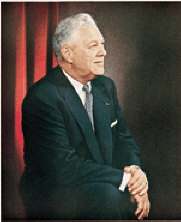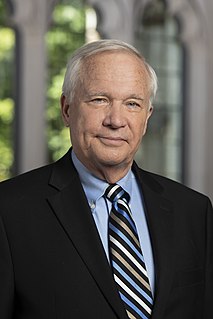A Quote by Leonard Sweet
Two opposing gospels are fighting one another for the soul of our nation and, increasingly, the world: the gospel of consumption and the gospel of peace.
Quote Topics
Related Quotes
The differing opinions regarding the gospel are often categorized as different variations of the same truth, or coming at the same truth from different angles, or even emphasizing different aspects of the same truth. This fails to recognize that the different 'variations' are often altogether different gospels. The Reformed gospel is completely different from the Roman Catholic gospel; a faith-based gospel is in direct contradiction to a works-based gospel; a truly evangelical gospel stands in contrast to an ultracharismatic gospel.
It's important, though, that there are not "four gospels." There is only one gospel: the good news of what God has done through Christ to save the world. But we read that one gospel in four complementary accounts: The gospel, according to Matthew, according to Mark, according to Luke, according to John.
Faith in the gospel restructures our motivations, our self-understanding, our identity, and our view of the world. Behavioral compliance to rules without heart-change will be superficial and fleeting… We can only change permanently as we take the gospel more deeply into our understanding and into our hearts. We must feed on the gospel, as it were, digesting it and making it part of ourselves. That is how we grow.
Avoid a sugared gospel as you would shun sugar of lead. Seek the gospel which rips up and tears and cuts and wounds and hacks and even kills, for that is the gospel that makes alive again. And when you have found it, give good heed to it. Let it enter into your inmost being. As the rain soaks into the ground, so pray the Lord to let his gospel soak into your soul.
Paul never glamorized the gospel! It is not success, but sacrifice! It's not a glamous gospel ,but a bloody gospel, a gory gospel, and a sacrificial gospel! 5 minutes inside eternity and we will wish that we had sacrificed more!!! Wept more, bled more, grieved more, loved more, prayed more, given more!!!
All archaeologists in Israel and Palestine make use of the New Testament Gospels. They do this because the Gospels exhibit verisimilitude. In short, the Gospels help archaeologists know where to dig and they help archaeologists understand what they unearth. The 2nd-century Gospels and Gospel-like writings rarely exhibit verisimilitude, so archaeologists rarely appeal to them.







































